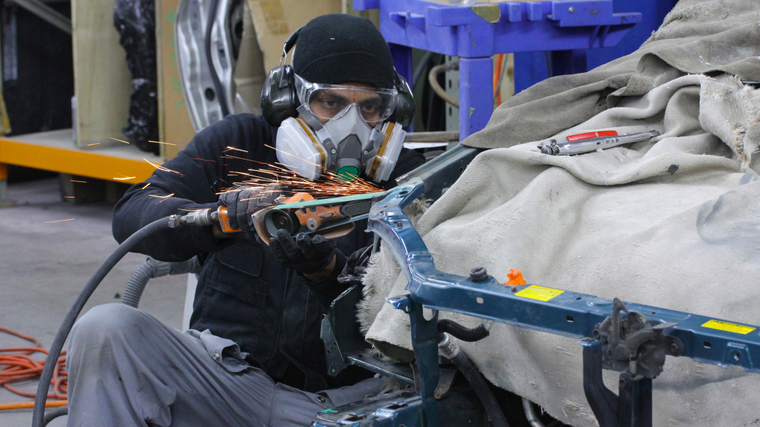Call for ‘strong, fair markets’

The Motor Trade Association (MTA) wants the Motor Vehicle Disputes Tribunal (MVDT) to be given wider remit to hear repair cases.
The association says “the time is right” to refine the tribunal’s jurisdiction given nearly two decades have elapsed since it was developed.
The MTA is also calling for the Consumer Guarantees Act (CGA), which it describes as a “blunt instrument” when applied to car sales, to be amended to give courts and tribunals discretion to allow for depreciation and use in some cases.
The reasons for the next government to review the MVDT and consumer legislation are outlined in the MTA’s call to action to future-proof the automotive industry.
It says the MVDT should serve as a one-stop-shop for motor-trade issues and disputes, and deal with a broader range of vehicle-related disputes currently handled by other areas, such as at district-court level and by the Disputes Tribunal.
The association would also like the cap on the MVDT’s jurisdiction to be lowered, and adjudicators given the ability to adjourn proceedings, direct focused legal input and allow greater lawyer involvement in larger or more complex cases.
In addition, it needs to be established the MVDT has a clearer right to transfer cases to the district court when appropriate.
“The MVDT is a useful forum for the cost-effective resolution of disputes that can benefit buyers and motor-vehicle traders,” says the MTA.
“A core benefit is its access to technical assessors who can assist adjudicators with arguments concerning technical issues. However, the MVDT’s remit does not currently cover disputes arising from repairs that have to go to the ordinary Disputes Tribunal and do not have access to mechanical assessors.”
As for the CGA, the MTA says consideration should be given to amending it so courts and tribunals have discretion to allow for depreciation and use of the vehicle in some cases.
It adds: “Under the CGA, a buyer can receive compensation for losses resulting from vehicle failure when it’s purchased from a licensed trader. However, in some cases, a buyer can also recover the full purchase price even after a year or more has passed.
“While the right to a full refund for faulty goods is keystone to consumer law and recognised by the industry, there may be instances where a reduction for usage and depreciation is appropriate. It has been several years since the CGA’s provisions for vehicles were last amended. A rethink is needed on how they might best apply.”
Future proofing industry
Called “Driving New Zealand Forward – future proofing the automotive industry”, the MTA’s call to action has been unveiled in the Grand Hall at Parliament Buildings ahead of this year’s general election.
People invited to the launch included Michael Wood, Minister of Transport, and Julie Anne Genter, Simeon Brown and Simon Court – transport spokespeople for the Greens, National and Act respectively.
The MTA says the car industry is a significant contributor to the economy. It employs 62,700 people, provides $30 billion of goods and services, and contributes $5.5b to gross domestic product.
The 44-page document identifies challenges the sector faces and what the next government should do to address them, including warrants of fitness, the clean-car programme and scrappage, the labour shortage and NZ Immigration’s green list, training and apprenticeships, and law reforms.
Action in franchise sector
In addition to overhauling the CGA and MVDT, the MTA is urging the government to consider legislation to regulate the franchise sector, address power imbalances, and ensure fairness for franchisees and franchisors.
“We have seen how Australian dealers were compensated when a major manufacturer exited the market, while New Zealand dealers would have received nothing had the manufacturer not voluntarily applied the same formula,” it says.
“We need a mandatory franchising code similar to Australia, to ensure fair and ethical franchising practices here.”
The MTA adds many automotive franchisees and franchisors have experienced unfair treatment in their franchising relationships on this side of the Tasman.
“For example, some have had their franchise agreements terminated or renegotiated without reason, resulting in business closures or job losses. New Zealand does not have any specific law to regulate franchising conduct and protect franchisees’ rights. This creates an imbalance of power and a lack of recourse for franchisees.”
Other action the MTA is calling for when it comes to “strong, fair markets” includes:
• Adding provisions to existing laws establishing a process for repairers to lawfully deal with abandoned goods, perhaps drawing on existing legislation that applies to local authorities and residential landlords dealing with abandoned goods or aspects of the existing statutory worker’s lien-sale process.
• Amending sections 16 and 17 of the Fuel Industry Act so smaller independent dealers are released from anti-competitive supply arrangements and can supplement supply agreements from the wholesale market.
• Ensuring a wholesale collective bargaining exemption applies to the retail-fuel market, allowing smaller retail-fuel operators to secure fairer contractual outcomes, consider a separate act to regulate the franchise sector, address power imbalances, and ensure fairness for franchisees and franchisors.






